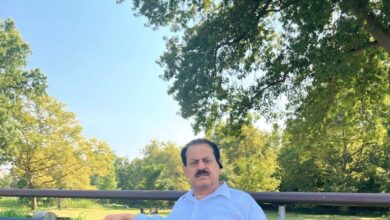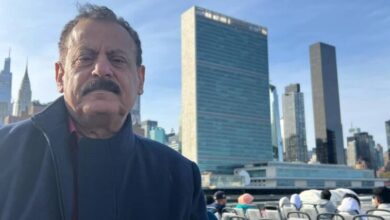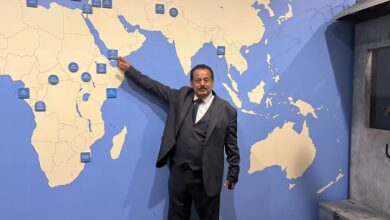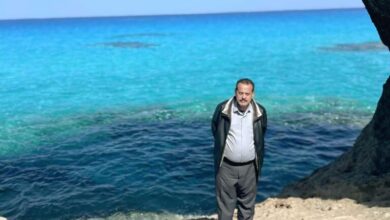A Battle with Death
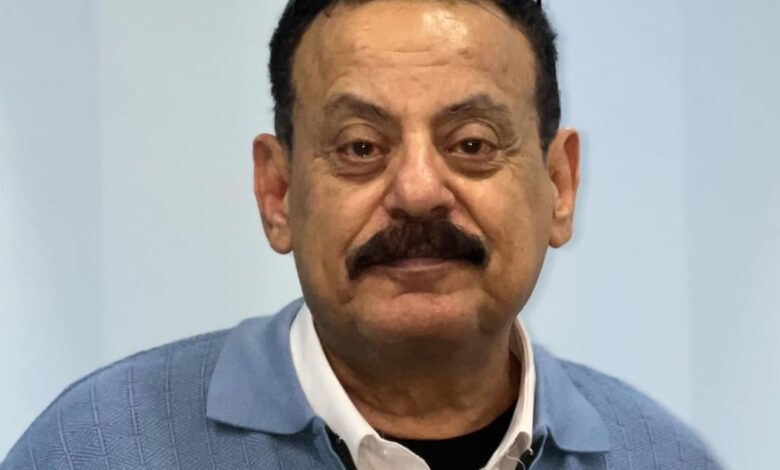
Yemeni mp
Ahmed Saif Hashed
My mother gave birth to a daughter she named “Barakah,” after her own mother. Yet, a supposed curse associated with the name prompted an urgent change to “Nadia,” inspired by a television presenter, in hopes of alleviating the ominous fate that loomed over our livelihood.
My parents feared that this curse would extend to us all, even foreseeing a potential rift between them.
Strangely, my father lost his job at “Al-Bass” company just days after Nadia’s birth, transforming their suspicions into a grim certainty.
This event unleashed a torrent of fears within them regarding an uncertain future, amplifying their anxiety.
My parents believed that this ill fortune would haunt our lives like a curse until they were blessed with another child—one who would bring us joy and hope, dispelling the shadow that had fallen upon us with Nadia’s arrival.
Yet, even that distant hope required a full year of waiting, perhaps even longer, remaining uncertain and unpredictable.
The question lingered: how would we find our daily bread during this time, or even a fraction of it, if our circumstances worsened? What if we welcomed another ill-fated child, compounding our misfortune? As the saying goes, “Misfortunes do not come singly.”
To accuse a newborn, who is blissfully unaware of her surroundings, of being a harbinger of bad luck is undoubtedly a cruel and unfounded charge.
It is even more unjust to condemn her based on a belief in the supernatural that lacks evidence. Clinging to such illusions and mistaking them for certainty only perpetuates a state of delusion without purpose, unfairly targeting an innocent child who bears no responsibility for the judgments cast upon her.
Nadia certainly did not choose her fate, her birth date, or her astrological sign—nothing for which she could reasonably be blamed or criticized. She is, without a doubt, a victim of circumstances beyond her control, unconnected to the astrological speculations of the adults around her.
Moreover, she was born with a skin condition that afflicted her mother during pregnancy, and now she faces her own existential battle, caught in a struggle between the will to live and the imminent threat of death that seeks to claim her, all amid suffering and horror.
Why not view this situation from a different angle, applying the same belief in the unseen? Why not consider the possibility that the unseen has spared us from greater calamities? As the saying goes, “Perhaps you dislike something which is good for you.”
Might it be that rather than being cursed, she is a blessing, her existence saving us from a loss or death that could have befallen one or both of us had we continued living in the house where “the Angel of Death” claimed my sisters, Nour and Samia, where I too nearly succumbed?
Why not adopt a similar perspective: “The evil has departed,” a phrase invoked whenever a water jug breaks or a coffee cup falls, as if warding off a greater misfortune? I have survived death twice; survival for a third time may seem impossible.
Life holds paramount importance compared to all else, no matter how dire; the sanctity of life supersedes all. I often reflect on the man who intended to harm his daughter because she was labeled a misfortune for him, driven by illness until he was convinced she was a burden unto herself, not to him.
That girl has forever shed tears, haunted by the memories of what transpired, suffering that the passage of time has not erased.
* * *
“Al-Bass” company, where my father worked, laid off several employees, and he was among them. Such a loss is grave, a fate greater than we can bear. What calamity has befallen us, O God?
Our fear of the unknown looms larger! My father has lost his job, and there is no alternative to replace it. Before us lies a void, a black hole threatening to swallow us whole, plunging us into depths of suffering with no end in sight.
There is no hope to sustain us, no glimmer of optimism on the horizon.
The sky is overcast, the earth grim, and despair courses through our veins. Our income has vanished, and our circumstances have worsened, leading to a future filled with want and desperation.
My father had no choice but to return us to our village, a place crushed by misery and hardship, with no light at the end of the tunnel.
How bleak life becomes when you lose your job and your means of sustenance!
A grievous blow has struck us, yet a compounded tragedy has befallen my father.
A family’s tragedy as the provider loses his meager income, while another family in the village suffers from poverty and hunger, relying solely on what my father can send at the end of each month.
My father wanders aimlessly, searching for the face of God, yearning for solace amidst the chaos. The weight of his despair bears down upon him, nearly crushing.
I envision our plight as if a boulder the size of a meteor had been hurled from the heavens, striking not just my father, but all of us, leaving devastation in its wake and upending our lives.
Our options are limited, riddled with difficulty; in truth, we find ourselves bereft of choice.
There is no work, no opportunity to secure our daily bread, and any thought of assistance is but a distant memory.
We are submerged in the depths of an unforgiving sea, without hands, paddles, or even a straw to cling to, like a drowning person. Confusion and the unknown envelop us, lost in an expansive chasm of despair.
Within a month of my father losing his job, he returned us to our village. The pain multiplied—two families now suffering from hunger, with everything precious slipping away, and no hope of rescue from our wretched condition in Aden.
My father had no choice but to venture into the unknown, seeking another job that might rescue us from this bleak existence and the slow death that loomed over us.
This occurred before the independence of South Yemen from British occupation. The world had closed in around my father, darkening after we lost our livelihood. We returned to the village of our origins, our situation akin to that of salmon returning from their migration, destined to perish in their birthplace.
My father continued his search for work, traversing land and sea to provide for us, carrying the weight of responsibility even as our suffering seemed overwhelming. His destination this time was Burbara, in our brotherly Somalia.
* * *
But today, what can I say to you, Father? What ocean can contain the depth of our conversations, the anguish of our souls and bodies?
Today is worse than yesterday, to the point where comparison becomes futile. No language can adequately capture the horrors we face—terrifying and grotesque. Calamities besiege us from all sides, raining down disasters and disappointments without pause or respite.
What has transpired and continues to unfold is beyond the imagination of even the most rational mind. It is a burden too great for the strongest mountains to bear.
Our current suffering renders the tragedies of yesterday, along with all the hardships of that era, as insignificant as a pinhead in an endless ocean—an ocean filled with torment, death, and despair.
We inhabit an era of heightened calamities and horrors, where what was once a manageable burden has transformed into an unrelenting series of disasters that no mountain, however strong, could endure. The world has unleashed its ugliness and corruption upon us, showering us with terrors and monstrosities.
The chasm between yesterday’s misfortunes and today’s overwhelming disasters is unfathomable. We have endured seven relentless years of war, a hell without respite, driven by insatiable ambitions and boundless chaos, a division that refuses to pause.
Multiple wars rage across the landscape, led by countless marauders and warlords, supported by well-fed patrons, each scavenging what they can from Yemen.
The bitter question arises, Father: Where is Yemen? The answer is shocking, reflecting our dire reality: Yemen was here! We are engaged in a battle for existence against death, waging war against a thousand curses.
Nine barren years, and we know not how many more await us! Nine years of famine in which our people have consumed themselves, while the flames devour anyone they choose. There is no escape, no salvation.
All misfortunes have converged, and curses have summoned their armies, presenting a horror greater than we can endure.
This is a tragedy of profound depth, without bottom or end. Our suffering is greater than an ocean, vast in breadth and length.
The hyenas have devoured our limbs and hearts, blocking our paths and violating our rights. We are left without land, islands, or bays—no ports, ships, or sails. No ebb or flow, no air to breathe. They have choked our breath, paralyzed our nerves, and seized the future of our generations. You can only begin to imagine the magnitude of this catastrophe.
More than one and a half million employees, retirees, and beneficiaries find themselves stranded, their salaries abruptly cut off, leaving them bereft of honest means of livelihood.
Meanwhile, the factions embroiled in conflict have turned against one another, neglecting their responsibilities toward this vast number of individuals who support nearly ten million citizens, all burdened by poverty and need.
Most have descended into destitution, as poverty indicators reach alarming heights in a homeland desperately searching for its identity.
The state, or what remains of it, has crumbled—its constitution and laws, its administration and institutions in ruins.
Services have plummeted to their lowest depths, leading to death and the violation of rights. We have regressed to conditions reminiscent of a millennium past.
The currency has deteriorated, rendered to mere paper. Our rulers show no shame nor do they blush at the suffering around them.
Unemployment has soared, and poverty flourishes on the backs of those who endure it.
Under the guise of international support, a deliberate policy of impoverishment has descended upon our people. They have ignited every fire within us, unleashing horrors upon our heads, resulting in ongoing pain and wounds that refuse to heal. Diseases and epidemics proliferate, accompanied by displacement and famine.
Oh Lord, how fiercely war has ravaged us, while more terrifying and savage foes lurk in the shadows.
More than a million impoverished citizens are now turning against one another in trenches and battlefronts, fighting at the borders of newly constructed entities—boundaries of division and sharing in this so-called “new Yemen,” even as they protect the borders of others within our own land.
Usurping authorities impose their will, seizing lands through oppression and dominance. Human values are squandered, and the rights of our people are trampled upon—plunder and collapse reign supreme. Warlords, the ignorant, and opportunistic agents exercise power over us.
A tremendous aggression and unprecedented brutal occupation have taken hold. What has transpired is beyond description, unimaginable, and unfathomable.
* * *


